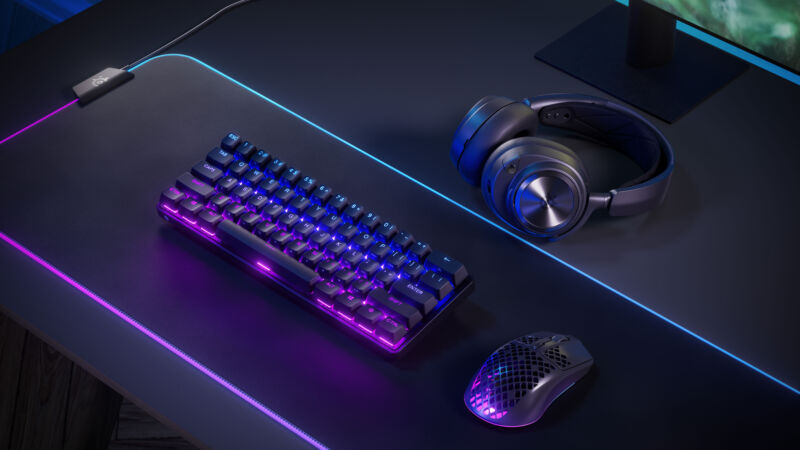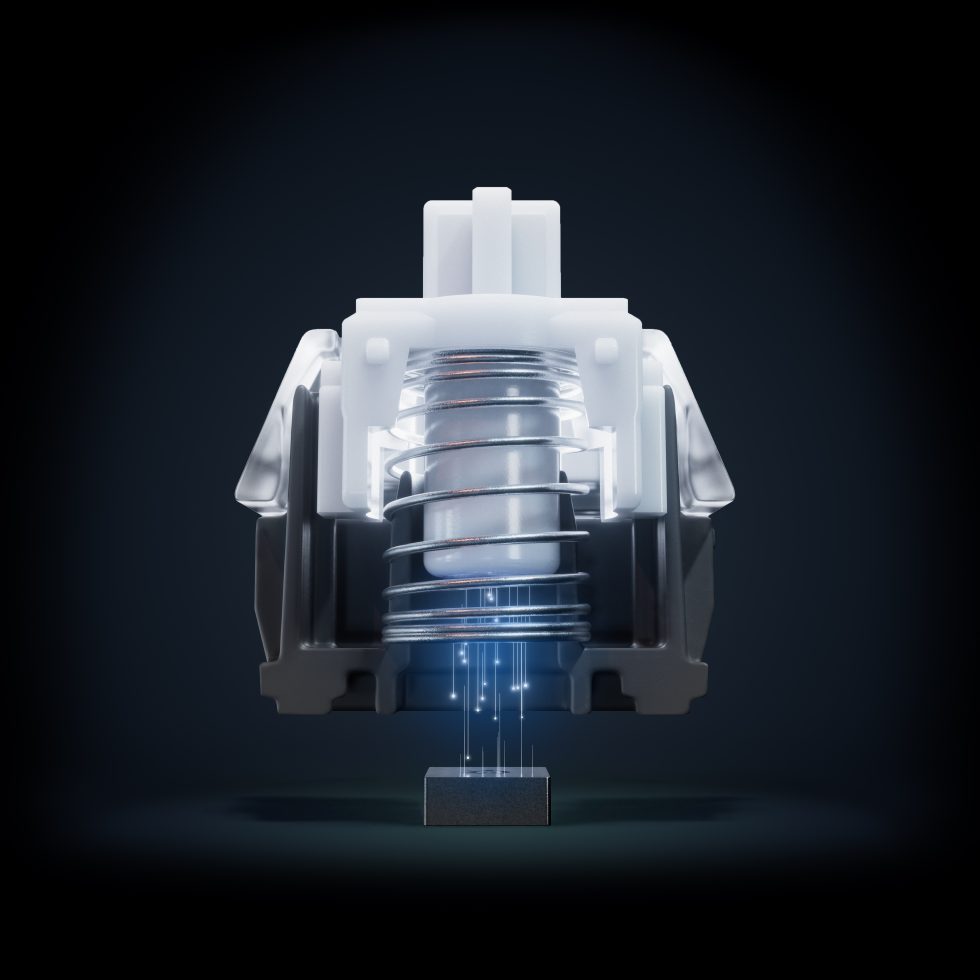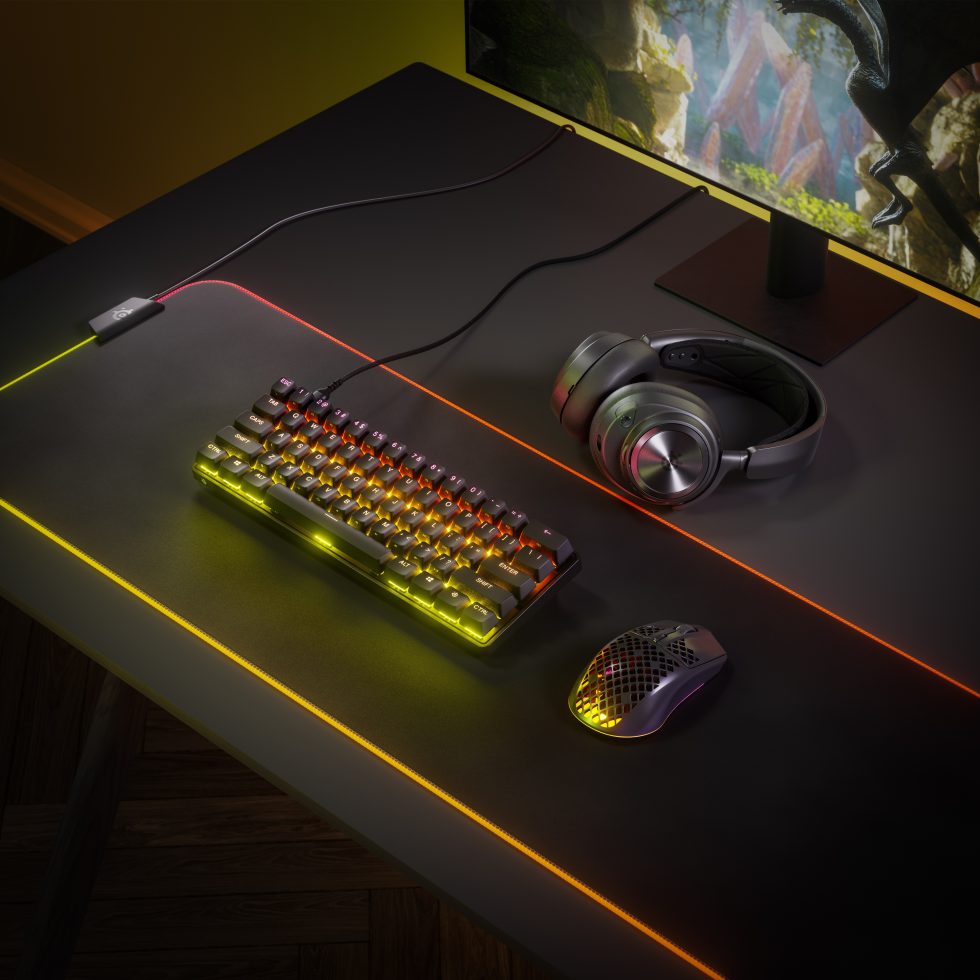
Adjustable mechanical switches are a simple way to customize the feel of different keys in a keyboard. These switches let you choose their actuation point, or how far you press the key before it registers an input, for sensitivity that you can vary based on the key or the application you're using.
Peripherals-maker SteelSeries today announced new wireless and wired mechanical keyboards with mechanical switches that let you adjust each key's actuation point. The compact SteelSeries Apex Pro Mini Wireless and Apex Pro Mini also let you program the keys so that a keypress will register two inputs if you press the key down far enough.
Adjustable mechanical switches
SteelSeries first started selling its adjustable OmniPoint mechanical switches in its SteelSeries Apex Pro keyboard in 2019. The OmniPoint 2.0 switches debuting in the Apex Pro Mini Wireless and Apex Pro Mini 60 percent keyboards released today are even more adjustable.

The new switches are linear (see our guide to mechanical keyboards if you're lost), with a total travel of 3.8 mm. The actuation point, meanwhile, is up to you. You can set it from 0.2–3.8 mm via 0.1 mm increments.
That's a much wider range than what the Razer Huntsman Mini Analog offers (1.5–3.6 mm) but notably shorter than the range of the Gateron X Lekker switches found in Wooting's latest keyboards (0.1–4.0 mm). The switches in the Razer and Wooting keyboards also support analog, or joystick-like, input in the small number of PC games that support it.
A PC gaming-focused brand, SteelSeries suggested using the feature to customize your gaming experience, such as setting a higher actuation point for "deep throws" and a lower one for "featherlight touches."
I personally prefer a stiffer spacebar, and while keyboards with spacebars with higher actuation points or hot-swappable mechanical switches are available, something like the Apex Pro Mini keyboards do the same while letting me change my mind easily and also adjust the feel of numerous keys, not just the spacebar.
One press, multiple inputs

SteelSeries picks up a feature found in adjustable-switch keyboards by rivals including Razer and Wooting: mechanical switches that can enter two inputs with one keypress.
For example, you could program it so that pressing "A" enters an "A" if you press the key down 0.5 mm and then a "B" (or anything else) if you continue to press the same key down another 0.5 mm.
SteelSeries' announcement pointed to gaming combos, like walk and run or pulling out a grenade and then quickly throwing it, as potential uses. Once I became used to executing it smoothly, I found the feature helpful in games where time is essential. But creative advanced users could also use the feature to hack some speedy input outside of the battlefield.
Unfortunately, SteelSeries is currently limiting its so-called Dual Action feature to these new keyboards, and due to their lack of a numpad, the clackers aren't a great fit for all users.
How they work
OmniPoint 2.0 switches work like their predecessors by using magnets and the Hall effect.
Typical mechanical switches actuate when two pieces of metal make contact. Each press of an OmniPoint 2.0 switch sends a magnet down the switch's stem, bringing it closer to a Hall effect sensor at the base. By using the magnetic fields, the keyboard reads the distance between the magnet and sensor so it can tell how far a key has been depressed and register an input (or two) when appropriate.
Because there's no physical contact between parts, the OmniPoint series of switches can last longer than typical mechanical switches. Cherry MX Red linear switches and OmniPoint switches are both specced to last for 100 million keypresses each. However, there are some traditional mechanical switches with lower ratings, such as the Cherry MX Silent Red (50 million keystrokes).
If you set the switches to their lowest actuation point of 0.2 mm, SteelSeries claims the switches will have a response time of as low as 0.54 ms. One of the ways SteelSeries says OmniPoint keyboards boost speed is by placing the analog-to-digital converter directly on the keyboard's main chip rather than on the switches and scanning each key every 700 millionths of a second.
Prices
The Apex Pro Mini Wireless has a $240 MSRP. The Apex Pro Mini is $180, making it slightly cheaper than the $200 MSRP of its full-size counterpart, the Apex Pro.
The keyboards face direct competition in the Razer Huntsman Mini Analog, which has a $150 MSRP, and the upcoming Wooting 60HE ($175).
And for those who prefer a numpad, the Razer Huntsman V2 Analog ($250) and Wooting Two HE ($195), which also support dual-step actuation, are worth noting.
Ars Technica may earn compensation for sales from links on this post through affiliate programs.
"type" - Google News
June 22, 2022 at 12:19AM
https://ift.tt/aeugxmZ
SteelSeries’ wireless mechanical keyboard can type 2 things with 1 keypress - Ars Technica
"type" - Google News
https://ift.tt/9eqUkgf
https://ift.tt/xf683bM
Bagikan Berita Ini














0 Response to "SteelSeries’ wireless mechanical keyboard can type 2 things with 1 keypress - Ars Technica"
Post a Comment